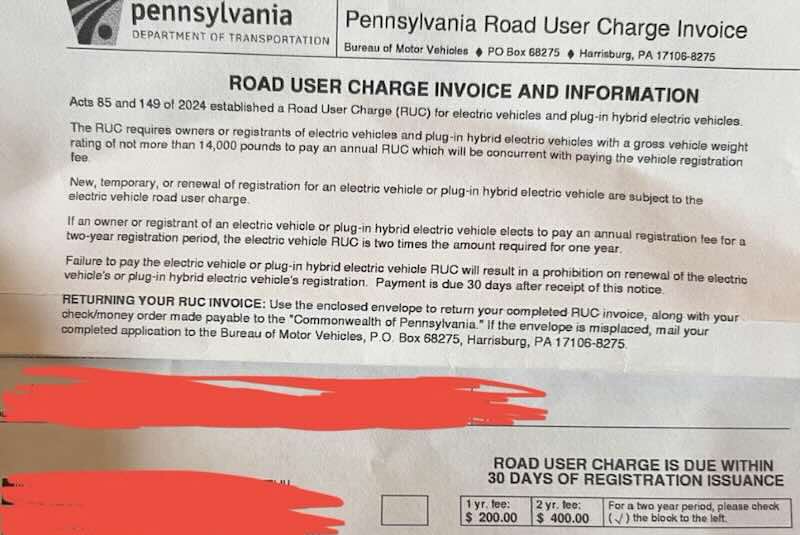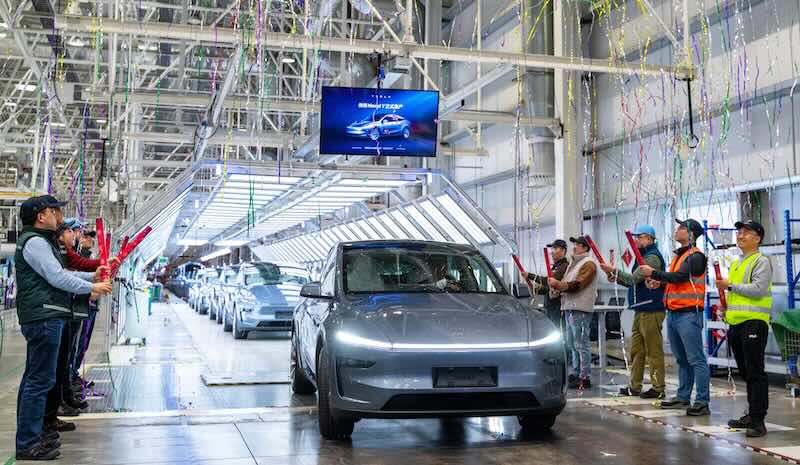Electric vehicle owners across America are discovering that going green doesn’t mean going tax-free. States nationwide are implementing registration fees specifically targeting EV drivers, with Pennsylvania leading the charge at $200 annually. Trend represents a fundamental shift in how states fund transportation infrastructure as traditional gas tax revenue declines.
Pennsylvania’s approach to EV taxation demonstrates the complex calculations states face. State charges EV drivers $200 for their first year of registration, then $250 for subsequent years. Drivers can opt for a two-year renewal at $400, but this front-loaded payment structure doesn’t provide long-term savings. These fees will increase with inflation, creating an escalating cost burden for EV adoption.

Pennsylvania charges EV drivers $200 per year to drive their vehicles.
Other states aren’t waiting to follow Pennsylvania’s lead. Illinois adds $100 to EV registration costs, while North Carolina implements a $214.50 annual fee. Patchwork of state-level charges reflects each government’s attempt to replace lost fuel tax revenue without coordinating nationwide standards.
Traditional drivers pay approximately 40.4 cents per gallon in combined federal and state taxes, translating to roughly $200 annually for average consumption patterns. States argue that EV drivers should contribute equivalent amounts for road maintenance and infrastructure development. Logic forms the foundation for most EV fee structures, though implementation varies significantly across jurisdictions.
Transportation departments face mounting pressure to maintain funding levels as EV adoption accelerates. Gas tax collections, historically reliable revenue streams, are declining as fuel efficiency improves and electric vehicles gain market share. States must balance encouraging clean transportation with preserving essential infrastructure funding.
The current trajectory suggests that EV drivers won’t be able to dodge these charges much longer – they’re simply getting amped up nationwide.
Related Post
Republicans Plan to End $7,500 EV Tax Credit by December 2025, Draft Bill Reveals
Tesla New Model Y Long Range RWD: More Range, Faster Acceleration, Same Price
Washington State Approves 10% Tax on Tesla Carbon Credit Sales
